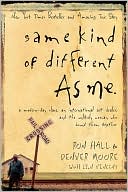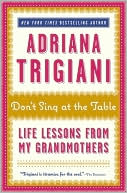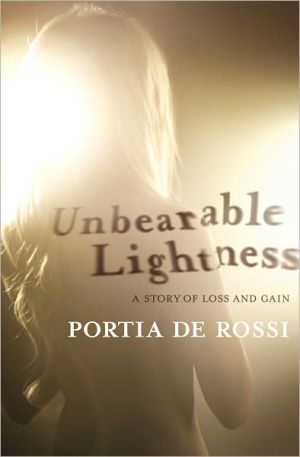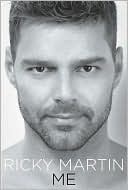The Locust and the Bird: My Mother's Story
"In a masterly act of literary transformation, celebrated novelist Hanan al-Shaykh re-creates the dramatic life of her mother, Kamila, in Kamila's own voice. We enter 1930s Beirut through the eyes of the unschooled but irrepressibly spirited nine-year-old child who arrives there from a small village in southern Lebanon. We see her drawn to the excitements of the city, to the thrill of the cinema, and, most powerfully, to Mohammad, the young man who will be the love of her life." "Despite a...
Search in google:
In a masterly act of literary transformation, celebrated novelist Hanan al-Shaykh re-creates the dramatic life and times of her mother, Kamila. Married at a young age against her will, Kamila soon fell head-over-heels in love with another man—and was thus forced to choose between her children and her lover. As the narrative unfolds through the years—from the bazaars, cinemas and apartments of 1930s Beirut to its war-torn streets decades later—we follow this passionate woman as she survives the tragedies and celebrates the triumphs of a life lived to the very fullest. The Barnes & Noble Review In the Velvet Underground's playful yet sincere "Rock and Roll," Lou Reed relates the story of a girl named Ginny whose humdrum existence changes drastically when she stumbles upon a New York radio station playing an entirely new kind of music. Ginny will never be the same, and this is a good thing. Indeed, "her life was saved by rock and roll." In The Locust and the Bird, Lebanese novelist Hanan al-Shaykh depicts her mother, Kamila, a stifled young teenager in 1930s and '40s Beirut, finding succor in Egyptian romance films and their crooning stars' mellifluous love songs. Denied an education by her family, illiterate Kamila explains that "the cinema had become my school, teaching me about life, history and geography." And after being married off at the tender age of 14, Kamila's continued furtive escapes to the movie theater provide more than just fun afternoons, as that is where her unlikely quest for love is nurtured. In a sense, movies save Kamila's life.
1932: Ever Since I Can Remember\ It all began on the day that my brother Kamil and I chased after Father, with Mother's curses ringing in our ears. I hoped and prayed God would take vengeance on him. He'd fallen in love with another woman, deserted us, and married her.\ Mother had been to court in Nabatiyeh to seek child-support payments, but it did no good. Kamil and I were hunting for him so that he would buy us food. We ran over the rocky ground to the next village where he lived. We searched in the market at Nabatiyeh, asking people where we might find him. The sound of his voice and his loud laugh finally led us to him; he was too short to spot in a crowd, much shorter than Mother. Following her instructions, we asked him to buy us sugar and meat. He agreed immediately, telling us to follow him. We tagged along, our eyes glued to his back, terrified of losing him among the piled-up sacks of burghul and lentils, camels, donkeys, sheep and chickens, hawkers and vendors peddling their wares. At times he disappeared and we'd panic, thinking we had lost him for ever; then he'd reappear and our spirits would soar. Finally he gave up trying to lose us. He told us that he had no money and could buy us nothing. He described how to find our uncle's cobbler's stall near by and then he vanished.\ Kamil yelled Father's name as loudly as he could above the vendors' cries and the bleating of the animals.\ 'Listen, boy,' said a man selling sheepskins. 'That voice of yours is about as much use as a fart in a workshop full of metal beaters!'\ We made our way back to Mother. She was waiting with her brother at his cobbler's stall. When she saw we were empty-handed, she frowned and swore she'd go back to court. We arrived home with no meat, no rice, no sugar. Mother made us tomato Kibbeh without meat. She squeezed the tomatoes and the red juice oozed between her fingers. Did the tomato pips feel pain and try to escape, I wondered? Didn't Mother say that Father had crushed her heart?\ Mother kneaded the Kibbeh.\ 'Look how red it is, and there's burghul in it, just like real Kibbeh,' she said brightly.\ Like real Kibbeh? Who was she fooling? Where was the raw meat to be tenderised? Where was our wooden mortar and pestle, which I would recognise out of a thousand? Real Kibbeh? Then why wasn't Mother extracting those white, sinew-like bits of thread and making a pile of them, leaving the meat looking like peeled figs?\ The next day Mother took us to court and talked to a man called a sheikh, who wore a turban shaped like a melon.\ 'My husband's refusing to support them,' she told him, pushing us forward. 'How am I supposed to feed my children? By cutting off a piece of my own hand? How am I supposed to clothe them? By flaying my own skin?'\ We listened as the man in the turban talked to Mother. He used one phrase that stuck in my mind: 'The payment due to you will be sitting right there, in the middle of your home.' I thought he meant it would happen literally; I didn't realise it was a figure of speech. The moment we got home I started pacing the floor, the way I'd seen older people measure things, even graves. When I'd calculated the exact middle of our home, I sat by the spot and waited for the lira to appear.\ A neighbour came in to offer Mother advice.\ 'Let him have the children,' she said. 'Stop torturing yourself!'\ 'Get out of my sight!' Mother yelled, and chased her to the door. 'Before I throw you into the prickly pear bush!'\ Needless to say, the money never appeared, not in the middle of the house or anywhere else. One day, Kamil and I were playing with some children at the front of the house. Mother was busy in the vegetable plot picking some of the beans she'd planted and hunting for wild endive and chard. Father arrived and asked us to go with him to the market so he could buy us clothes, meat, sugar, molasses and sweetmeats. We were so hungry and excited that we forgot to tell Mother. Without even putting on our shoes, we rushed to Father and ran along behind him.\ As we walked he kept adding to his promises.\ 'I want to buy you some new shoes as well. They'll be so shiny you'll see your faces in them!' he said.\ He took us along a path between rocks, thorns and a few trees. But we knew this wasn't the way to the market; the path led to the neighbouring village, where he and his new wife lived.\ 'So she thinks she's smarter than me?' he told his new wife when we arrived at their house. 'They can live here. Then there'll be no expense and no headaches either.'\ It was a long night. We tossed and turned, yearning for Mother. I worried that she must be imagining a hyena had pissed on our legs, enchanting us and stealing us away to its lair, where it would tear the flesh from our bones. Or perhaps she thought that the earth had opened up and swallowed us. But my brother assured me that the children we'd been playing with would tell her that we'd gone with Father. We fell asleep clutching each other, listening to each other's heartbeats, missing the sound of our cows in the night.\ In the morning, I found I could not read Father's wife's expression. But at home, I had no trouble understanding Mother. I knew that I loved her. I also knew that, because Mother didn't like Father's wife, I wasn't obliged to like her either. I stared at her eyes, trying to discover the secret of their green colour - they were the first eyes I'd seen that weren't black. Did she put green kohl around them? Mother had black eyes - she ground black stones and used the grinds to line her eyes. We missed Mother so much that we couldn't swallow our breakfast of molasses and sugar. We had to sip tea with each mouthful.\ My brother and I sat close to each other, staring and yawning, waiting for evening. Time passed slowly. It was the summer holidays and Father wasn't teaching in the second room of his house, so we didn't even sit and watch the lessons. We had never asked if Mother could send us to a teacher in Nabatiyeh; we knew that she couldn't afford it.\ We made up our minds to run away just before sunset. There was no forethought; it was just the idea of another night in bed without Mother sleeping between us, a hand stretched out to touch each child, that made us leave. We waited on the porch until Father's wife put down a dish of lentils by the stone bread-oven. As soon as she disappeared inside to knead her dough, my brother grabbed the dish of lentils and poured the contents into his djellabah, gasping at the heat. Then we ran barefoot, back the way we'd come, over the brown and red stones, over the sparse vegetation, never stopping to worry about thorns or the scalding lentils. We kept running - not hand in hand as my mother used to instruct us. 'Promise me, you won't let anybody separate your hands, even angels,' she would say. I didn't even stop when I spotted, amid the rocks, a bush bearing a tomato the colour of anemones. Only when the fig trees and the big pond came into view did we slow down and begin to relax. When we spotted a grey rock called the camel (because it looked like one) we were certain we were on the way home. Thorns got inside my dress; they pricked my skin and hurt like hornet stings, but I wanted to see Mother and eat some of those lentils so badly that I ran even faster, as though I was swallowing the ground itself.\ Darkness fell suddenly, as if the camel had blocked out the sun. We were terrified that Ali Atrash was going to jump out at us. Ali Atrash was the local madman; he walked with a wooden box tied so tightly against his chest that it seemed almost a part of him. When he breathed or cried out, the box jerked up and down. People said he'd once had a stash of gold coins, but awoke one morning to find them gone from the wooden box in which he hid them. When suspicion fell on his own brother, Ali Atrash went out of his mind. From that day on, he was scared of young children throwing stones at him. But they did it because they feared his madness. He would yell at them, nonsensical things like, 'Gold from the earth, gold from the earth!'\ I tried to reassure my brother, telling him that Ali Atrash wouldn't harm us because he knew we were the children of a woman the locals called Little Miss Bashful. She had always treated him kindly, taken his hand when she met him, brought him to her house, sat him down on the threshold, bent over his shoeless feet and pulled out the thorns with her eyebrow tweezers, and given him food and drink.\ Could he see us in the dark, we wondered? We each held our breath until we saw our house in the distance and knew for sure we were home. But before our joy could be fulfilled, we spied a figure wandering back and forth. I was sure it was Ali Atrash, but instead it was Mother waiting for us. When she saw us, she cried out and burst into tears. We whooped with pleasure.\ 'We've come home, Mother!' yelled Kamil. 'We've brought some lentils. I want you to have them.'\ Mother began to sing, as if she was keening, and wrung her hands. She ran towards us, and we to her, until she wrapped us in her arms, weeping, kissing us and inhaling our scent.\ 'The bastard kidnapped you,' she kept saying. 'May God snatch him away too!'\ She took us inside, and my brother scooped the lentils on to a plate. Mother had prepared some green beans and we ate with gusto. Then the three of us settled on the mattress. Mother sat, blowing on my brother's scalded thighs and my bleeding feet.\ 'Mother,' I asked, 'how did you know we would run away and come home?'\ 'I'm your mother, aren't I?'\ I lay there, listening to the cows mooing in the back yard. I reminded myself that they snorted whether or not I was home, without knowing what was going on. Their huge eyes stared into the darkness as they lay down for the night. I stared hard through the darkness too, anxious to reassure myself that I was with Mother in the house and not with Father and his wife. This house would always stay where it was; I could see the bureau, the mirror, the living room, and the window.\ I only felt sleepy when Mother finally lay down between me and my brother. The wind whistled and brushed the trees. The mooing soothed me to sleep, as if the cows were singing me a lullaby.
\ Nora KrugBilled as a biography but narrated in Kamila's voice, the book reads like a novel. In al-Shaykh's hands, Kamila is the brave, long-suffering heroine of a Cinderella tale with a bittersweet ending.\ —The Washington Post\ \ \ \ \ Publishers WeeklyAl-Shaykh, a Lebanese journalist and author of six novels (including Story of Zahra), finally succumbs to her illiterate mother Kamila's haranguing to write her story. The result falls somewhere between memoir and biography as she recreates and undoubtedly takes literary license with her mother's history. Kamila and her brother grow up in poverty, estranged from their father, until their mother moves them to Beirut to live with their older siblings from her first marriage in the 1930s. Soon, one of their sisters dies of rabies and the family marries 14-year-old Kamila unwillingly to the widower, Abu-Hussein, 18 years her elder. Kamila torments her husband to show her displeasure, but bears him two children by the age of 17. Her starry-eyed love of the cinema is all that assuages her unhappiness but also fuels her affair with a man her own age, Muhammed. After the 10-year affair has shamed both their families, she is granted a divorce from Abu-Hussein but must leave her two daughters behind, including the author, Hanan. Kamila has five more children with Muhammed. Though at times Kamila's life feels overly condensed, the author's journalistic talent reveals itself in her ability to get past her own abandonment to paint Kamila as a vivid, willful girl who lived as though she were the heroine of a great film. (Aug.)\ Copyright © Reed Business Information, a division of Reed Elsevier Inc. All rights reserved.\ \ \ Kirkus ReviewsThe memoir of Kamila, a Lebanese Muslim woman whose novelist daughter (Only in London, 2001, etc.) takes on the voice of her mother to tell her story. Al-Shakyh begins in 1932, when her unschooled mother was also seven, living in poverty in a village outside Beirut. After she moved to Beirut to live with extended family, Kamila, whose views of life were shaped by romantic movies, fell in love with 17-year-old Muhammad. Forced at age 14 to marry her widowed, much older brother-in-law, she had her first child at 15 and her second (the author) three years later. Older family members took care of her children while the pretty, cunning Kamila stole money from her husband, mocked him at prayer and carried on an affair with Muhammad. Eventually she divorced, leaving her children behind, and married her lover. Marriage to Muhammad, however, was far from romantic, and she was soon overwhelmed by the responsibilities of running a household and exhausted by multiple pregnancies. Muhammad's accidental death left her a widow at age 34 with five children to support. Especially vulnerable because she was a woman who could neither read nor write, Kamila somehow kept her family together, though the details are vague. She evaded or conned creditors and surrounded herself with women who gave each other moral support. The author tells less about the later years of her mother's life, part of which she spent with family in Kuwait and later San Diego, where she appears as an unhappy, isolated woman and an interfering mother-in-law. The author returns to her own voice to end her mother's story in Beirut, where Kamila died in 2001. The picture that emerges of a devious woman struggling to make her way in a rigid,male-dominated society is clear, but the prose is often trite and the chronology murky. A dramatis personae and occasional footnotes aid readers unfamiliar with Lebanese history or Muslim culture. An unflattering portrait, perhaps exacerbated by an infelicitous translation.\ \ \ \ \ The Barnes & Noble ReviewIn the Velvet Underground's playful yet sincere "Rock and Roll," Lou Reed relates the story of a girl named Ginny whose humdrum existence changes drastically when she stumbles upon a New York radio station playing an entirely new kind of music. Ginny will never be the same, and this is a good thing. Indeed, "her life was saved by rock and roll." In The Locust and the Bird, Lebanese novelist Hanan al-Shaykh depicts her mother, Kamila, a stifled young teenager in 1930s and '40s Beirut, finding succor in Egyptian romance films and their crooning stars' mellifluous love songs. Denied an education by her family, illiterate Kamila explains that "the cinema had become my school, teaching me about life, history and geography." And after being married off at the tender age of 14, Kamila's continued furtive escapes to the movie theater provide more than just fun afternoons, as that is where her unlikely quest for love is nurtured. In a sense, movies save Kamila's life.\ Al-Shaykh writes The Locust and the Bird from Kamila's perspective, consulting the copious notes she took as her mother recounted her alternately heart-wrenching and humorous experiences, as well as the heaps of personal papers belonging to her stepfather, Muhammad, the man Kamila loved and eventually married after divorcing her first husband. The resulting book movingly re-creates the life of a brave, mischievous, and stubbornly romantic woman.\ Interestingly, in its Arabic-language edition, The Locust and the Bird was marketed as a novel. Yet the English-language edition, translated by Roger Allen, professor of Arabic and comparative literature at the University of Pennsylvania, avoids categorizing the book. In reality, The Locust and the Bird is a memoir decanted into a novel, though with almost every chapter it is impossible to know where Kamila's reminiscence ends and al-Shaykh's imagination begins. While the English-language version condenses and sometimes removes entirely certain sections, it also features two major additions. These are the prologue and three chapters (including the epilogue) at the end, which differ from the rest of the text in that they are written from al-Shaykh's perspective.\ Veteran translator Allen, who has rendered the works of Naguib Mahfouz and other luminaries of Arabic literature into English, ably handles both the modern standard Arabic in which the narrative is written as well as the Lebanese proverbs (Kamila's specialty) scattered throughout. There are, however, occasional mistakes when it comes to Lebanese politics or even, at one point, Islam. A footnote describes Eid al-Adha as the feast which concludes Ramadan. In fact, in a near parallel to the biblical story, Eid al-Adha marks Abraham's acceptance of God's command (later withdrawn) to slaughter his son Ishmael as a sign of faith; separately, Ramadan draws to a close with Eid al-Fitr.\ Kamila and Muhammad were both dead by the time The Locust and the Bird was first published in Arabic (in 2005), but the process of creating this unique literary work has clearly proven cathartic for al-Shaykh, who long had a strained relationship with her mother. For years, al-Shaykh resented Kamila, feeling that she had abandoned her and her sister when she divorced their father and married Muhammad. Only much later did the Lebanese novelist famous for tackling gender inequality and female sexuality in novels such as The Story of Zahra and Women of Sand and Myrrh reconcile with her mother and begin to understand the pressures that caused her to behave the way she did.\ At 14, Kamila is pressured by her religious Shiite Muslim family into wedding her late sister's husband, to whom she was unwittingly betrothed at the age of 11. Yet she continues to pine for Muhammad, the young man she loves; their relationship evolves despite her marriage and the arrival of two children, of whom the second is Hanan al-Shaykh. Only after the passage of several years does Kamila succeed in breaking free of her husband's grip and marrying the man she loves, though contact with her two daughters becomes sporadic, as they remain with their father.\ Throughout Kamila's turbulent life, there remain two constants. The first is Lebenslust. This sustains Kamila during her childhood, first marriage, and especially when her erstwhile friends turn their backs on her for divorcing her husband and marrying Muhammad. "I thought about the sheer misery of those women I'd once known so well, women who, unlike me, had never tasted the sweet pleasures of love and passion," she muses. "Their spouses never watched films the way Muhammad and I did; they didn't understand songs or fall under their spell; they never recorded their thoughts, wrote down proverbs, memorised poetry and recited it by heart."\ The other invariable feature of Kamila's days is the ever-hovering menace of male domination. Of course, her situation is hardly unique: "Most of my friends were scared of every man in their family -- even distant relatives -- and this included the rich and the grand, like my glamorous cousin Mira." Divorcing her husband and marrying Muhammad provides some respite for a few years, but when Muhammad dies in a car accident, Kamila yet again finds herself at the mercy of men. In line with Islamic law, her brother-in-law is made her "guardian" and placed in charge of her finances. Kamila must summon both courage and guile to convince the shariah court to grant her independence.\ The novel's only significant weakness is its sluggish pace. Inevitably, the poetry-filled yearning characterizing Kamila and Muhammad's years apart begins to grate after a while. And al-Shaykh's decision to chronicle Kamila's countless attacks of jealousy and insecurity proves exasperating, repeatedly miring the story in protracted nothingness. Equally unoriginal is Kamila's realization that married life with Muhammad is not all bliss, what with children and domestic chores multiplying almost unabated.\ Of course, there are exceptions. Occasionally, al-Shaykh will inject a surprisingly powerful element into descriptions of her mother's long days and quotidian duties, as when she depicts Kamila's disturbing (and successful) attempts to miscarry, a ghastly homegrown solution to unwanted pregnancy. And after Kamila is widowed, al-Shaykh poignantly has her express her newfound anxiety: "During our marriage, my endless pregnancies and exhaustion had left me isolated from friends and relatives. I'd seen the world through his eyes. After his death, it was as if I started out all over again."\ What really matters, however, is al-Shaykh's major twofold achievement with The Locust and the Bird. To begin with, she has written a stirring but never hagiographic account of a woman -- her mother -- who defies almost every major societal and religious stricture governing women's behavior in her time. Yet al-Shaykh also manages the remarkable feat of unpretentiously capturing a character's philosophical relationship with art. A close reading of The Locust and the Bird reveals that -- perhaps counterintuitively -- young Kamila does not in fact live vicariously through film; she pointedly refrains from transmuting her hunger for the real yet elusive man she loves into a complacent satisfaction with the honeyed images of romance flitting before her eyes. Indeed, far from allowing films to become her life, Kamila emerges from the theater spiritually refreshed but further impelled to achieve her dream. And that, aside from being a profound notion al-Shaykh deftly encapsulates in literary form, is probably both the wisest and healthiest approach to art. --Rayyan Al-Shawaf\ Rayyan Al-Shawaf is a contributor to the Barnes & Noble Review.\ \ \








